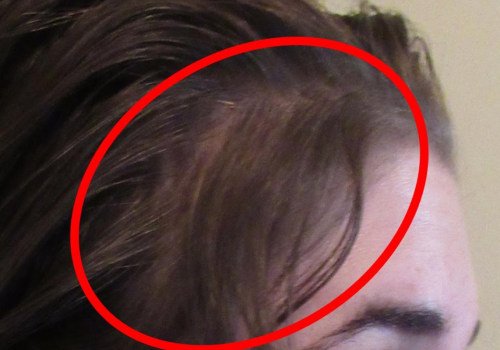These deficiencies, especially if maintained over a period of time, can lead to a type of hair loss called telogen effluvium. The good news is that this condition is usually reversible, so adopting healthier, less restrictive eating habits will allow hair to grow back. Fortunately, the effects of malnutrition on the hair are reversible as long as you regain nutritional stability for 6 months or more. Once the deficiencies are corrected, the hair will grow back, although it may take some time.
In some cases, weight loss can lead to side effects, including hair loss. Hair loss that results from weight loss is a temporary condition that occurs when a person loses weight through a restrictive diet or weight-loss surgery. Stress in the body or nutrient deficiencies may be the cause. Prevention and treatment of telogen effluvium focus on proper nutrition and diet.
Maintaining a balanced diet while avoiding fast diets and quick fixes is important for long-term weight loss success, as well as avoiding telogen effluvium. This temporary form of hair loss is known as telogen effluvium. Fortunately, hair loss from weight loss is usually temporary and will usually grow back once you eat an adequate amount of protein again. Your body needs adequate calories and protein to feed the hair follicles.
According to some experts, the more weight you lose, the more likely you are to experience some degree of hair loss. Losing and regaining weight for many years can affect your metabolism and hair growth. Some people may experience hair loss within 3 to 6 months of starting diets (e.g. In general, a balanced and healthy diet should reverse hair loss within six months.
People mistakenly believe that the junk food they consume only makes them fat. However, if you are losing your hair, then your poor diet could be just as guilty as your genetics. Female patients can also blame low estrogen levels, which is why temporary hair loss occurs after childbirth or during menopause. Still, scientists think of their current findings as the first step towards better ways to maintain or restore hair and skin health.
To prevent hair loss, avoid restrictive and shock diets, feed your body properly and supplement before and after weight loss surgery. Limited information on the effects of niacin supplementation to improve hair growth in the absence of deficiency. In cases like this, hair loss occurs due to nutritional insufficiency; your body is signaling a problem. Formulated specifically for the scalp, PEP Scalp is an innovative alternative to PRP treatment for hair and scalp rejuvenation.
A health care provider can identify the cause of your hair loss and help you make a plan for your hair to grow back. For example, an insufficient amount of protein in your diet can damage healthy hair and inhibit the body's ability to develop new hair follicles. Certain hair appliances that use high heat to help comb hair can cause hair damage and break, which may look like baldness. In patients with hair loss, but without any known risk factors for nutrient deficiency, laboratory tests are not required to detect nutrient deficiency.
In 79% of people who reported hair loss, loss began 3-4 months after surgery and lasted an average of 5.5 months (1.However, there are certain types of fish (mackerel, types of tuna, shark, and swordfish) that are high in mercury and can cause hair loss. Essential oils such as rosemary, thyme, lavender and mint have been found to increase hair growth in patients with alopecia, while coconut oil may help promote hair health and shine. Selenium is an essential trace element that plays a role in protecting against oxidative damage and morphogenesis of the hair follicle. For example, reducing the amount of iron in the diet can lead to iron deficiency anemia, which has a number of serious health complications.
This condition, which causes thinning or hair loss, occurs when the hair enters the telogen phase prematurely. . .





